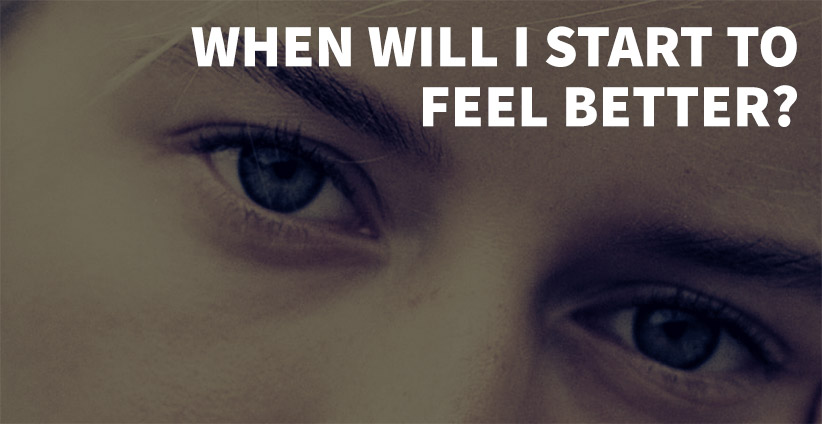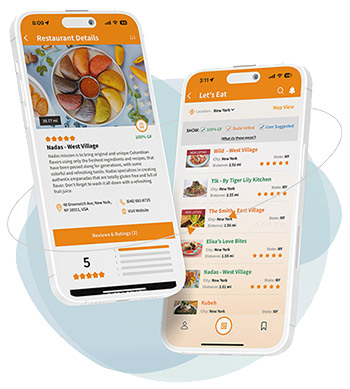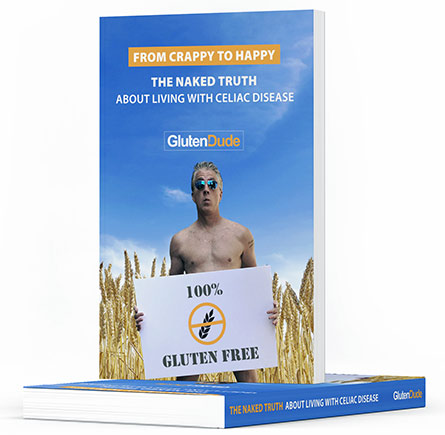The biggest lie in the world of celiac disease is that you’ll feel better immediately once you begin your gluten-free diet. It sure as hell didn’t happen to me and my guess is you also did not have those results. And it did not happen to this 19 year old woman, whose parents are frustrated. Here’s the email:
“Hi Gluten Dude. My daughter is nineteen and was diagnosed with Celiac Disease five months ago. She was having severe stomach pain and after landing in the hospital, a biopsy came back as celiac. She has gone completely gluten free and the severe stomach pains are gone but she just feels crappy almost every time she eats. They told us it may take up to a year for her to feel completely better because her celiac was on the severe side. I am looking for confirmation this is normal and that there is still hope she will feel better. She is down right now with all the things she can’t eat. It is devastating to she your child feel so left out I just wish she would turn that corner. Any advice would be terrific! Thank you!”
My advice? Stop eating gluten-free food. Tune in and it’ll make sense.
Podcast Transcription
Hello. Hello. Welcome to episode 6 of Dear Gluten Dude. It is Friday, October 29, 2021. Yes, it is Halloween weekend. I will try not to scare you too much with today’s episode. Today, we are talking about how long it’s supposed to take to heal after you go on a 100% gluten free diet.
As always, I have no sponsors on this podcast. It is just not my thing, but I do have a mobile app that will help take the stress out of eating out. If you have celiac disease, check it out at Glutendude.app and let’s head to the inbox.
You got mail, baby, Yeah.
“Hey, Gluten dude. My daughter is 19 and was diagnosed with celiac disease five months ago. She was having severe stomach pain, and after landing in the hospital, a biopsy came back as Celiac. She has gone completely gluten free. And while the severe stomach pains are gone, she just feels crappy almost every time she eats. They told us it may take up to a year for her to feel completely better because her celiac was on the severe side. I’m looking for confirmation that this is normal and that there is still hope she will feel better. She is down right now with all the things she can eat, and it’s devastating to see your child feel so left out. And I just wish she would turn that corner. Any advice would be terrific.”
All right, let me briefly touch upon her feeling left out. She’s 19 years old. Food should not be a reason she feels left out of anything. And if it’s friends or family members who are making her feel left out because of her disease, then maybe those aren’t really people she should be with anyway.
Now about taking a long time to heal. Oh, boy, I wish I had this podcast back when I was diagnosed. When I went to the doctor first and I showed him my diary and he says, Have you ever heard of Celiac disease? And I said, no. He goes, well, we’re going to test you for celiac disease. I said, well, okay. So I took a blood test and then I went home and I looked up Celiac disease. And of course, the first thing I saw was, you have to be on a gluten free diet for life. And I said, okay, what’s gluten? So I looked at what gluten was, and then I cried in my closet for like, 3 hours. No, I’m just kidding. So I did a bunch of research and every website I found said that once you go on a gluten free diet, you’ll feel better almost right away. And I mean, I must have checked 100 websites and 98 of them said the same thing. It’s a miracle diet. It makes your celiac not obviously go away, but you’ll feel better right away. So those are my expectations going in. So when I got the results in, he says, my God, yeah, you’ve got really bad Celiac, I said, okay, and I went home and went to Wegmans and got some gluten free food and just expected to feel better within a couple of days. And a day went by and a week went by and a month went by and a year went by. And I’m not exaggerating. I had some good days in there, but I felt like crap most of the time, and my frustration level was absolutely through the roof.
I eventually gave up dairy after a large, rare argument with my lovely wife, Debbie, A-K-A. Mrs. Dude, and that helped a lot, but it wasn’t enough. So I knew I had to make a serious change. So this is almost two years into my diagnosis. I heard about a diet called the Whole 30 from my wonderful friend Alyssa over at Inspired Rd. And she was feeling the same way I was. She couldn’t heal. She wasn’t feeling better. She tried the diet and it seemed to help. So I said, Well, what the hell? I got nothing to lose.
Let’s find out what the whole 30 diet is. It is 30 days of eating just whole foods so you can have fish, you can have meat, you can have veggies, you can have fruit, you can have water. What you can’t have is alcohol, grains, sauces, coffee. Although I cheated on that eventually. Dairy obviously gluten. The idea is that you’re cleansing your body for 30 days, allowing it to heal and then maybe reintroducing some normal foods after 30 days and I will tell you this; It was insane how much it helped me. And mind you, I thought I was being healthy in the first place before the whole 30.
So let me go over what I was eating in a normal day pre whole 30 and post Celiac diagnosis. I’d wake up and I’d have coffee with a splendid and some kind of gluten free bar, usually a Kind bar, anything that was gluten free and probably not very healthy. For breakfast, I’d have a bowl of honey chex with almond milk. For lunch, I’d have Brown rice, fish and veggies with a gluten free sauce. For snack, I’d have some other unhealthy gluten free bar, and then for dinner, I’d have gluten free pasta with chicken, et cetera.
Now to me, I thought that was a pretty healthy day, but then why did I always feel like crap? And why couldn’t I lose any of the weight I put on post diagnosis. Not that I was looking to lose weight, but I wasn’t feeling good about myself. I knew I had to shed some pounds, so I looked at the ingredients of honey nut chex and let me go over the first six ingredients: whole grain corn, cornmeal, sugar, honey, salt, molasses, Brown sugar syrup. And you’re wondering why I wasn’t feeling well.
Now, after the whole 30, this became my average eating day. Early morning black coffee, no sugar. I dropped the sugar in a splendid for my coffee breakfast. Three eggs with sausage asparagus onion and mushroom lunch, fish and veggies, but with olive oil and spices instead of the rice and the sauces. Snack was almonds or a piece of fruit, and dinner was a piece of chicken or steak with veggies, et cetera. Now, a couple of notes here you note, I’m not exactly starving myself with this new diet. Secondly, I’m not eating gluten free anymore. I’m eating just regular foods, and that was the key to my health in this situation.
For the nineteen year old woman who is not healing and you out there, if you’re not healing, let me ask you a question. When you were first diagnosed with celiac disease, what’s one of the first things that you did? Now, if you’re like me, you went to the store and cleaned the shelves of all the gluten free items you could find. Your mindset is, well, I can’t give up pizza. Oh, I can have gluten free pizza. Well, I can’t give up pasta. Oh, yes, I can have gluten free pasta. I can’t give up cookies. Yes, they have gluten free cookies. You get the point. The problem is, a large majority of the gluten free food out there is garbage. But many of the gluten free food manufacturers are more than happy to feed us this crap because they know the emotional attachment people have with eating, and they know the intense fear Celiacs have of losing their lifestyle as they know it. And they also know the enormous profit they can make off of us.
For the most part, let’s face it, big companies don’t give a shit about our health. They give a shit about their profit. I have been to a few Celiac awareness functions over the years, but you know what it is? It’s not so much about celiac awareness, but it’s a gluten free food orgy. It’s table after table of foods that Celiacs should not be putting into their bodies, but because it’s gluten free, hey, it must be good for us, right? Who cares if it’s twice as fattening, three times as expensive?
And look, I’m not saying you should not be eating treats, and I’m not saying you should never process food again. What I am saying is that if you are not healing, stay away from the gluten free foods, at least for a while. Just give your body rest, even for 30 days. Give your body a rest and see if it makes a difference. And if you’re like me, you will not go back to the way you used to eat. There is no reason at all any of us should be walking around in pain and simply accepting that, hey, that’s the life of the celiac. So bottom line, if you’re struggling, if you’re not healing, if you’re frustrated, do not accept that that’s just the way it is. Make a change. It could be the whole 30. It could be something else. But do not keep doing what you’re doing if you’re not getting the results. We all deserve to feel good inside.
And that puts a wrap on another episode of Dear Gluten Dude. As always, I thank you for listening. If you got a question about living with celiac disease, just send it on over to me. And who knows? It may become its own podcast episode one day. And please do not forget to check out my mobile app over at glutendude.app. It’s a restaurant directory. It’s a beer directory. It’s a Q and A, it’s a coupon code machine, and it’s a way to connect with others in the Gluten free community. Til next time, my friends.






I completely agree with you about the gluten free processed food. Even when I ate whole foods, and “GF grains,” I was still so sick after two years. I only got better once I went grain free and figured out other food allergies – corn, eggs, and dairy being the worst offenders. I am also carbohydrate intolerant and my body does better with more fat. I eat rice once in a great while when I have sushi but I know it doesn’t make me feel my best – I use it as a treat. I think it’s important to understand that every BODY is different and YOUR body is the best doctor. Eating whole foods most of the time, whether you have celiac disease or not, should be a focus for everyone. I also think it’s important to do your own research and follow people and doctors that expose the total truth of food culture – not just the story that fits your own narrative. You’re right, people do have an emotional connection to food, but, it’s of vital importance to see ALL sides of a situation – even the ones you don’t want to see because it doesn’t fit your narrative. For someone like me, who nearly died because people told me corn was safe on a “gluten free diet”, you have to remember that there are anomalies and even when something seems radical, it’s probably only radical because it doesn’t fit your perception or your situation. What one person advises might not work for you, but for someone else, it can quite literally save their life. I speak from experience. Your health is your responsibility and trust me, I’ve been to hell and back with my own health. If it wasn’t for certain doctors, I wouldn’t be here.